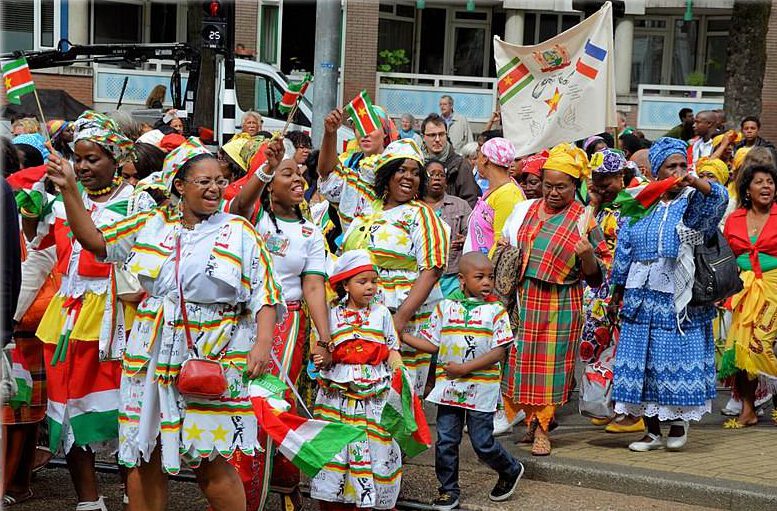A petition and private Dutch companies are leading the charge to make July 1 a Dutch national holiday to commemorate the day slavery was abolished in Suriname and the Dutch Antilles in 1863.
Many people across Suriname, the Antilles and the Netherlands celebrate Keti Koti (also written KetiKoti or Keti-Koti.) The festival is not a national holiday in the Netherlands — but that could be about to change.
This year, some Dutch companies will be giving their employees a day off on July 1. This decision has been made following the creation of a petition to recognise Keti Koti as a national holiday by The Black Archives, the Netherlands Becomes Better Foundation and radio station, FunX.
FunX and other companies such as Tony’s Chocolonely are amongst the first of those to declare July 1 a day off for their employees, regardless of whether or not Keti Koti is recognised.
What is Keti Koti?
Keti Koti, meaning “broken chains” in the Surinamese language of Sranantongo, is marked in the Netherlands by festivals and parades (called Bigi Spikri parades, meaning “big mirror.”)
READ MORE | Keti Koti and its significance in the Netherlands
Many enjoy wearing traditional costumes, perusing stalls and enjoying music in parks across the Netherlands. The most widely known celebration can be found in Amsterdam’s Oosterpark, where the National Slavery Monument is located.
However, for many, the day is not only a day of festivity but also of reflection and commemoration.
40,000 signatures needed
At least 40,000 signatures will be needed in order for the petition to be discussed in the House of Representatives, Mitchell Esajas of The Black Archives tells RTL Nieuws. Since the petition’s creation yesterday, the number of signatures has grown to nearly 15,000.
An important day of remembrance
Esajas points out that the liberation of thousands from slavery marks an important chapter in Dutch history, and it should be treated as such, saying “it’s also an important aspect of history, lest we forget.”
He likens the liberation from slavery under Dutch rule to the liberation of the Netherlands from Germany. Just as the Netherlands marks May 4 and 5 as national holidays, it should also acknowledge July 1 as an important date.
When a national day off is facilitated by employers and the government, you send a signal that society and the government think this is important enough.
Eva Hol, program director at FunX points to the importance of commemoration in Dutch society. “On days off like Easter, children ask: why do we celebrate that? That creates a conversation. That’s good,” she says.
Currently, the Netherlands falls behind when it comes to recognising and remembering its dark history and the large role the country played in the slave trade.
READ MORE | The life of the slaves in the Dutch colonies
A hopeful movement
However, the Netherlands slowly heading in the right direction. Last year, Amsterdam’s city council supported the request to mark July 1 as a national holiday. This week, further action has been taken with the cities of Amsterdam, Rotterdam, The Hague and Utrecht sending a joint letter to the Dutch cabinet requesting that the government mark Keti Koti as a national holiday.
Do you think Keti Koti should be a national holiday in the Netherlands? Tell us your thoughts in the comments below!
Feature Image: Undisclosed by Public Domain Pictures/Wikimedia Commons/CC1.0



